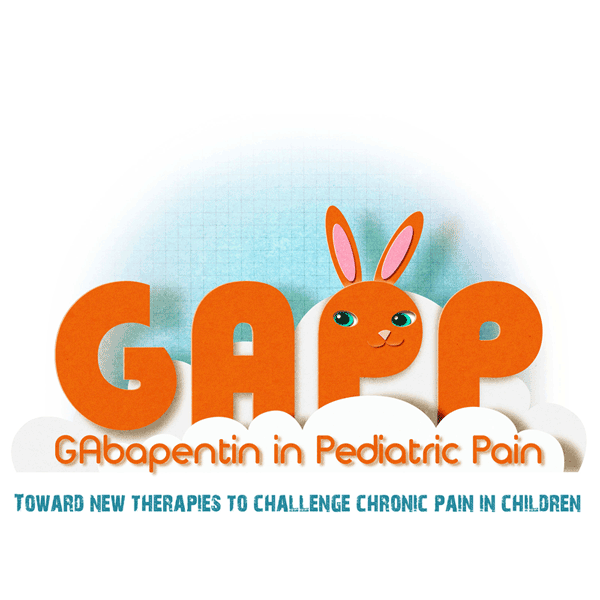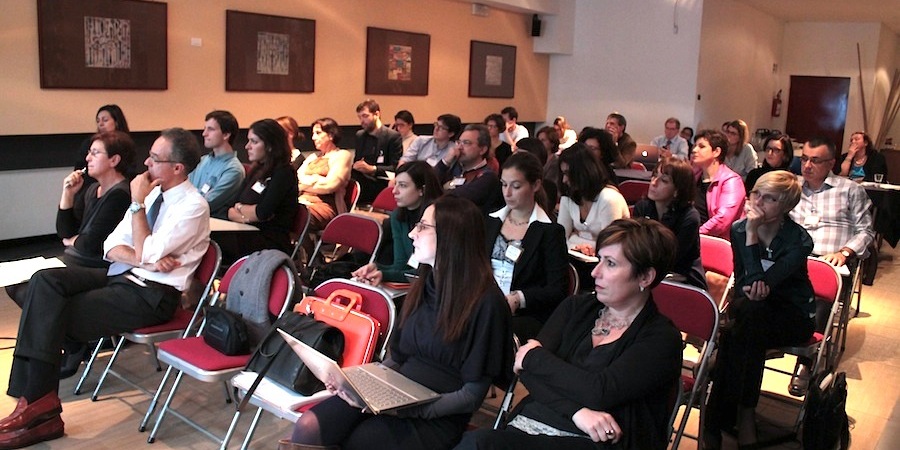


 The project, which is financed under the 7th Framework Program for Research and Technological Development and will last 48 months at a total cost of more than 7 million Euro, is led by Consorzio per Valutazioni Biologiche e Farmacologiche (CVBF). Its aims are to improve the quality of life in children affected by chronic pain, who in most cases are treated with drugs that lack commercial authorisation. “GAPP will not simply generate new clinical data, but it will also make a new drug available to everybody and it will do this through a special fund that the European Union has especially dedicated to explore the paediatric application of drugs that so far have only been tested and approved for use in adults.”, said Scientific Coordinator Adriana Ceci. “Among these is gabapentin, to which the GAPP project is dedicated and for which a great therapeutic interest has clearly emerged. An international network of experts to which the European Commission has decided to bestow its trust will cooperate to make this happen.”
The project, which is financed under the 7th Framework Program for Research and Technological Development and will last 48 months at a total cost of more than 7 million Euro, is led by Consorzio per Valutazioni Biologiche e Farmacologiche (CVBF). Its aims are to improve the quality of life in children affected by chronic pain, who in most cases are treated with drugs that lack commercial authorisation. “GAPP will not simply generate new clinical data, but it will also make a new drug available to everybody and it will do this through a special fund that the European Union has especially dedicated to explore the paediatric application of drugs that so far have only been tested and approved for use in adults.”, said Scientific Coordinator Adriana Ceci. “Among these is gabapentin, to which the GAPP project is dedicated and for which a great therapeutic interest has clearly emerged. An international network of experts to which the European Commission has decided to bestow its trust will cooperate to make this happen.”
Through the development of appropriately controlled clinical trials the project will investigate appropriate dosages, efficacy and safety of this drug in the treatment of paediatric pain thereby responding to a medical need that is currently unmet in the paediatric population. Dompé, one of the main biopharmaceutical industries in Italy, is the industrial project partner and the sponsor of the two clinical trials. Indeed, the group has long been involved in the Research and Development of therapeutic solutions for rare pathologies, which often lack standard treatment, in such areas as ophthalmology, diabetology, organ transplant and oncology. “We are participating in this research project on paediatric pain with strong conviction”, explained Dompé CEO Eugenio Aringhieri. “It is a challenge of a high ethical value, which a far-reaching public-private partnership in terms of aims and therapeutic ambitions. The GAPP project therefore represents the best synthesis of this virtuous alliance and an innovative work frame, in which this collaboration becomes a true accelerator of the innovation at hand.
“The first problem to be solved when a child has to take a medicine is that an appropriate dosage is administered. The drug might be otherwise ineffective or provoke adverse effects. In GAPP we will identify an optimal dosage for even the smallest children by applying models based on adult or older children dosages (this is why one of the studies to be carried out is called ‘Bridging modelling study’). This way we will be able to minimize the participation of the youngest children in the clinical trial.”, clarified Prof. Oscar Della Pasqua of the University College London.
“The problem of children suffering from chronic pain is widespread, but poorly recognized and often undertreated,” explained Marteen O. Mensink, MD at the University Medical Centre Utrecht. “A specific form of pain in which the nervous system is involved is called neuropathic pain. Usually, normal pain killers have little or no effect on chronic neuropathic pain and doctors often resort to prescribing opioids like morphine in an attempt to reduce pain. The use of opioids, however, is associated with serious side effects. Gabapentin is a drug originally designed to reduce epileptic symptoms, but in adults it has shown to reduce neuropathic pain as well. This study project is aimed at assessing the efficacy of gabapentin in reducing chronic neuropathic pain in children. If children with chronic neuropathic pain meet the inclusion criteria, they will be randomized into receiving either an opioid or gabapentin.”
“Accessibility and information on good pain treatment is fundamental for all children in the world coping with chronic pain”, declared Patty Brouwer, International Services Manager at the International Confederation of Childhood Cancer Parent Organizations (ICCCPO), which will play an important role in the dissemination of the project activities and results.
So far, an assessment questionnaire has examined medical practices in Europe: “Thirteen European medical centres participated in a survey on the diagnosis and treatment of paediatric neuropathic pain for the purposes of the GAPP project. Since therapeutic strategies and potential of recruitment varied widely, a methodological and statistical group will be created to work on the standardisation of definitions and therapeutic schemes for the GABA1 and GABA2 trials.”, said Florentia Kaguelidou and Saskia de Wildt, both experienced paediatricians respectively at Assistance Publique-Hôpitaux de Paris and Erasmus MC Sophia Children’s Hospital.
The Project kick-off gathered a consortium of 15 partners to launch project activities and discuss the four-year scope of work. In particular, it was aimed to give all participants a better understanding of the project tasks and goals, illustrate the key elements of the clinical studies and related open issues, explore regulatory aspects specific to each country involved, and start the debates over the possible methodology and coordination structure in which the cooperation may evolve in the most beneficial and effective way. Intended joint actions and work packages of the project were fruitfully discussed in order to plan future actions.
_______________
Press enquiries:
Alessia Fabbri
e-mail: [email protected]
tel: +39.080.9751974
GAPP Project Partners:
1 CONSORZIO PER VALUTAZIONI BIOLOGICHE E FARMACOLOGICHE – CVBF, Italy
2 ERASMUS UNIVERSITAIR MEDISCH CENTRUM ROTTERDAM, The Netherlands
3 FONDAZIONE PENTA-FOR THE TREATMENT AND CARE OF CHILDREN WITH HIV-ONLUS, Italy
4 SOCIETA SERVIZI TELEMATICI SRL – PEDIANET Italy
5 AZIENDA OSPEDALIERO UNIVERSITARIA CONSORZIALE POLICLINICO DI BARI, Italy
6 PHARM – PHARMACEUTICAL RESEARCH MANAGEMENT SRL, Italy
7 SIHTASUTUS TARTU UELIKOOLI KLIINIKUM, Estonia
8 DOMPÉ SPA, Italy
9 UNIVERSITY COLLEGE LONDON, United Kingdom
10 UNIVERSITÄTSKLINIKUM ERLANGEN, Germany
11 QENDER SPITALORE UNIVERSITARE NENEA TIRANE, Albania
12 ASSISTANCE PUBLIQUE – HOPITAUX DE PARIS, France
13 CONFEDERACION INTERNACIONAL DE ORGANIZACIONES DE PADRES DE NINOS CON CANCER ASOCIACION, Spain
14 ISTITUTO GIANNINA GASLINI, Italy
15 GENIKO NOSOKOMEIO PAIDON ΑTHINON I AGIA SOPHIA – PAIDON PENTELIS, Greece